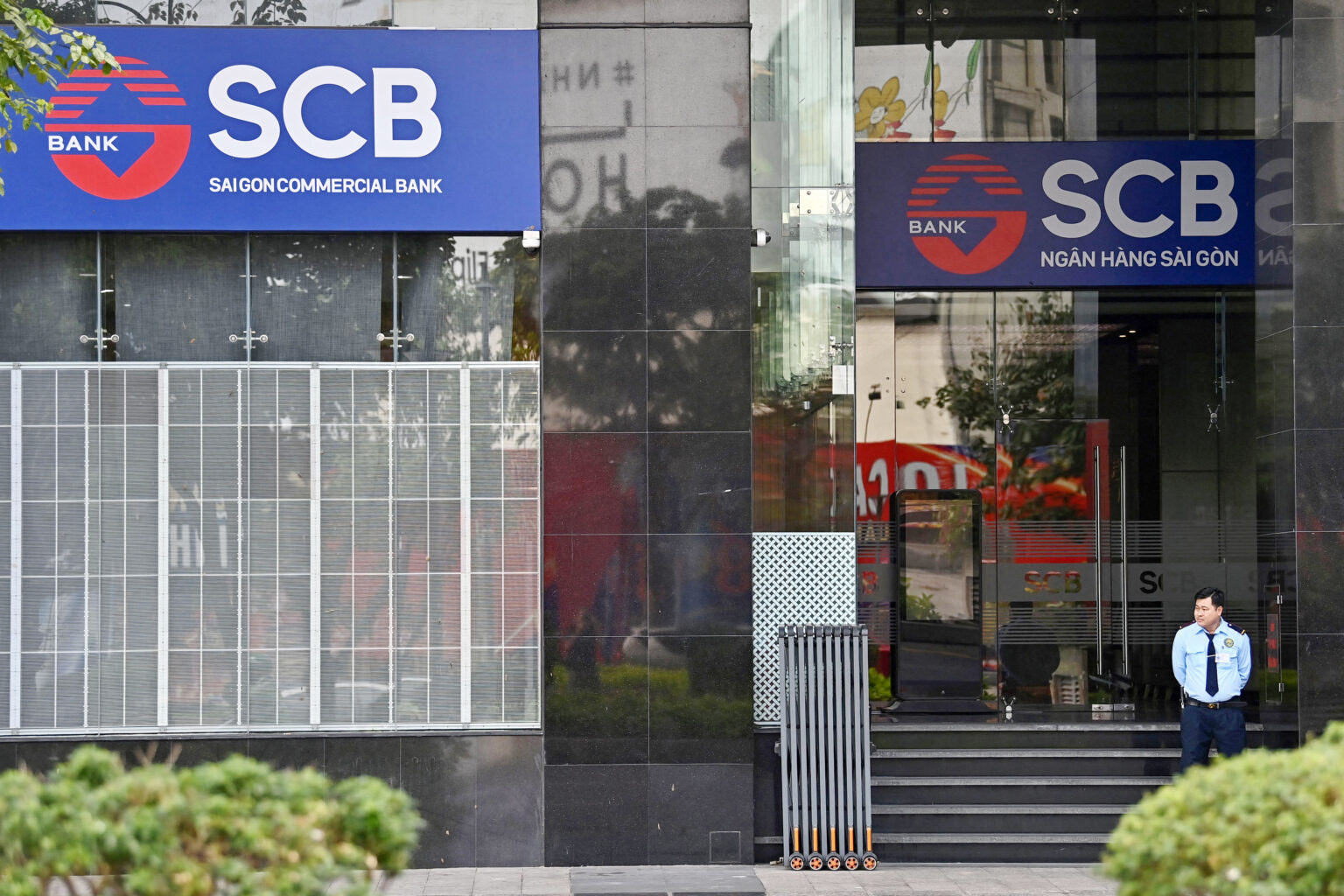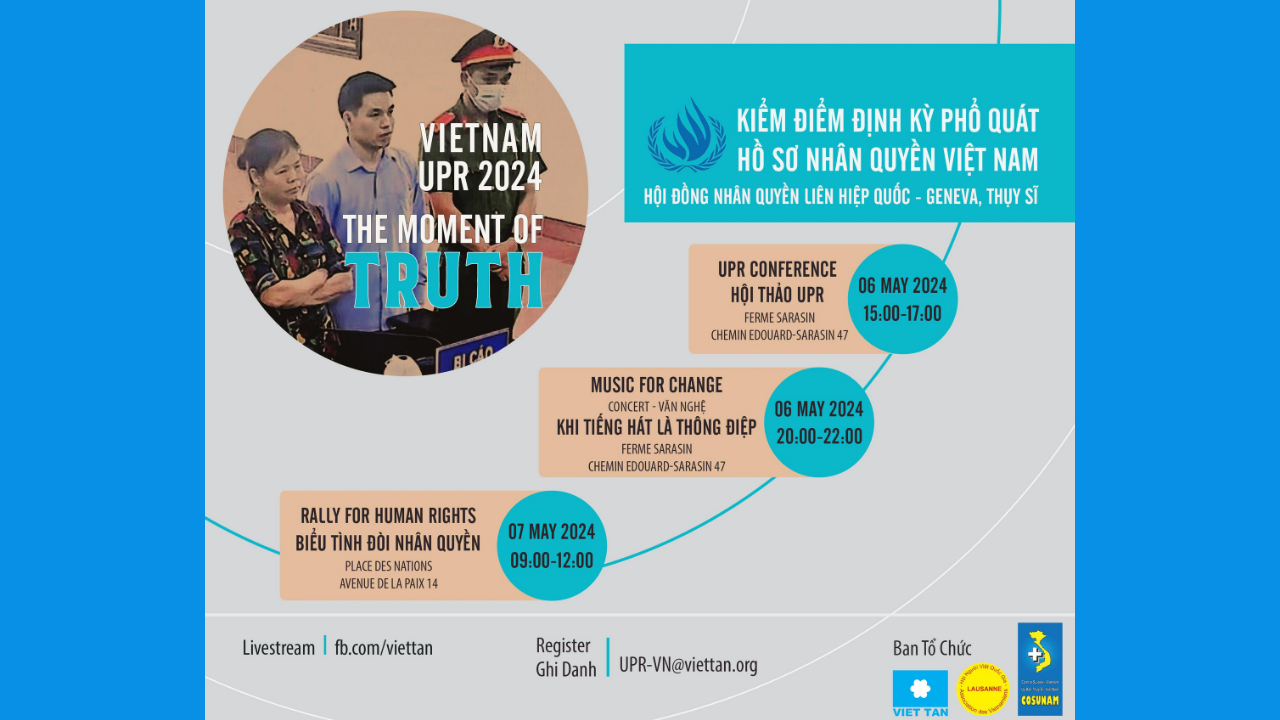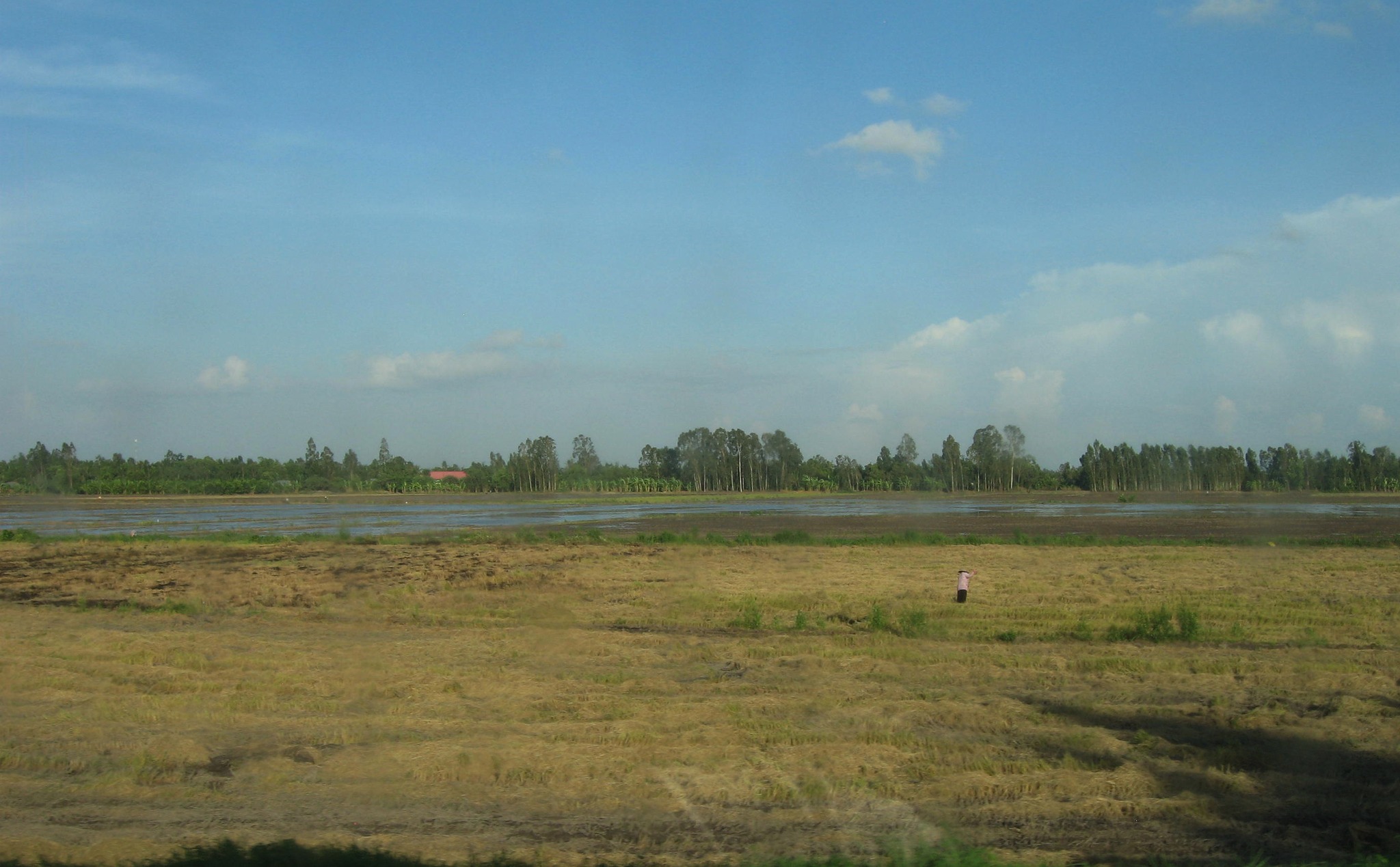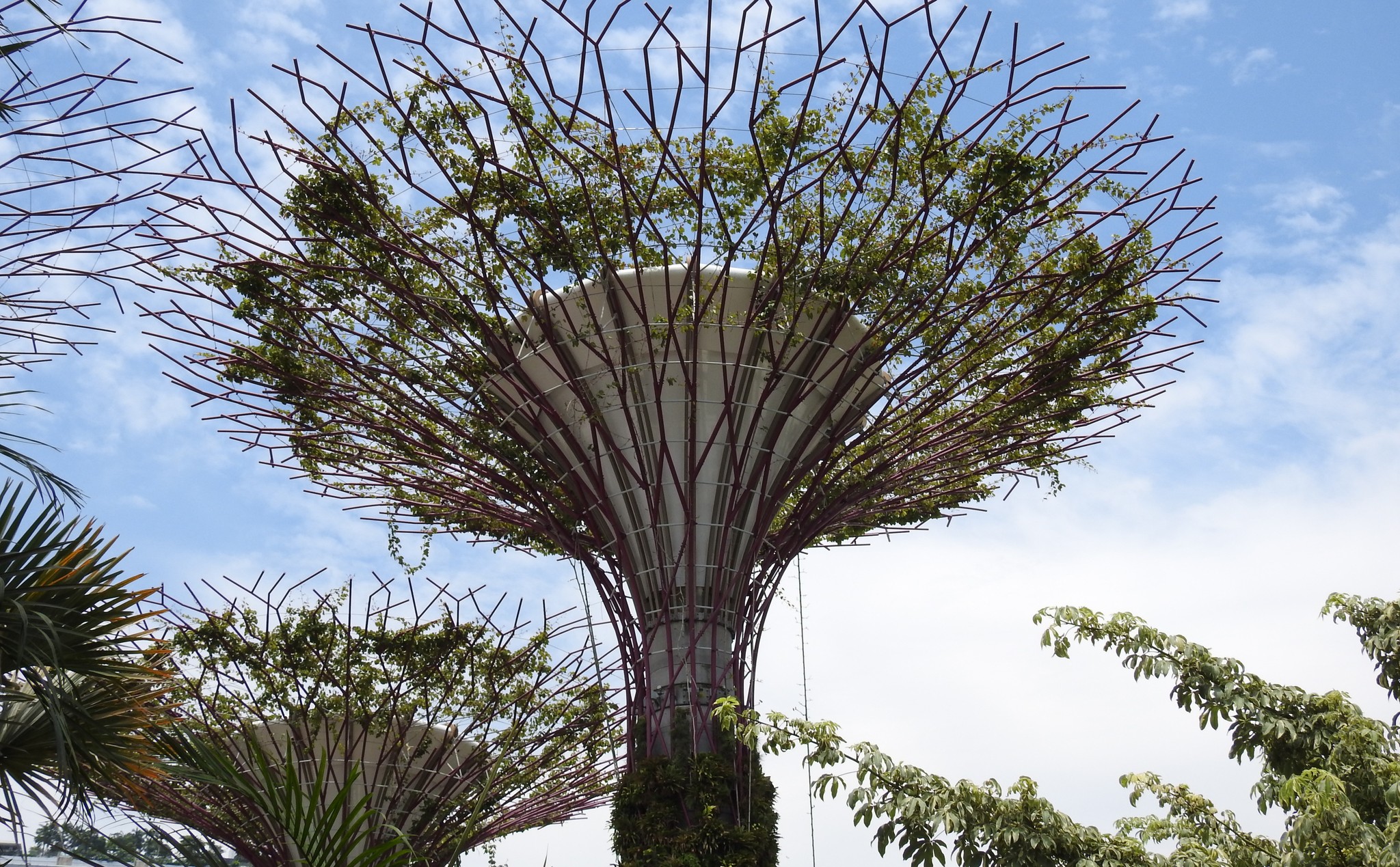Ðỗ Dzũng/Người Việt (Tường trình từ Washington, DC)
WASHINGTON, DC (NV) – Các nhân chứng và dân biểu Hoa Kỳ tham dự buổi Báo Cáo Tình Hình Nhân Quyền tại Việt Nam tổ chức tại tòa nhà Rayburn của Hạ Viện Hoa Kỳ vào lúc 3 giờ chiều ngày Thứ Năm vừa qua đều cho rằng Hoa Kỳ nên đưa Việt Nam trở lại danh sách Các Nước Cần Quan Tâm Ðặc Biệt (Countries of Particular Concern – CPC) vì những vụ bắt bớ trong thời gian gần đây.
Mở đầu buổi họp, Dân Biểu Loretta Sanchez nói: “Quý vị cũng biết, sau chuyến thăm Việt Nam mới đây, tôi đã trải qua một kinh nghiệm mà trong đó công an Việt Nam ngăn chặn thô bạo người nhà của những người bất đồng chính kiến khi họ đến gặp tôi. Khi tôi trở về Mỹ, tôi đã băn khoăn cho số phận của những người đó.”
Bà Sanchez nói tiếp: “Mới đây, chính quyền Việt Nam lại vừa bắt Luật Sư Lê Quốc Quân, vừa từ Mỹ trở về một tuần lễ, sau khi bắt nhiều người khác trước đó. Rõ ràng là sau khi Việt Nam được vào WTO, có PNTR và được đưa ra khỏi danh sách CPC, các vụ bắt bớ lại gia tăng. Vì thế, chúng ta có buổi họp hôm nay để yêu cầu chính quyền Hoa Kỳ đua Việt Nam trở lại danh sách CPC.”

Dân Biểu Ed Royce cũng đồng tình với đồng viện. Ông nói: “Tôi không bất ngờ khi nghe những trường hợp bắt bớ như vậy tại Việt Nam. Chúng ta sẽ còn nghe nhiều người bị bắt nữa chừng nào Hoa Kỳ còn để Việt Nam nằm ngoài danh sách CPC. Sau khi Việt Nam có tất cả, họ đã bắt Linh Mục Nguyễn Văn Lý, Luật Sư Nguyễn Văn Ðài, Luật Sư Lê Thị Công Nhân và nhiều người khác. Tôi hoàn toàn ủng hộ việc đưa Việt Nam trở lại danh sách CPC.”
Cũng có mặt tại buổi họp, Dân Biểu Dana Rohrabacher cho biết Hoa Kỳ không nên vì lợi ích kinh tế mà bỏ lơ tình trạng nhân quyền hiện nay tại Việt Nam.
Ông nói: “Việt Nam và Hoa Kỳ có một mối liên hệ không thể tách rời. Chúng ta từng chiến đấu vì tự do tại quốc gia này. Chúng ta phải tiếp tục công việc này. Hoa Kỳ phải đặt tự do nhân quyền tại Việt Nam là ưu tiên số một. Kiếm tiền chỉ nên là ưu tiên số hai.”
Cũng theo Dân Biểu Sanchez, “tất cả những gì xảy ra trong buổi họp này sẽ được ghi lại để các thành viên Quốc Hội Hoa Kỳ biết về tình hình nhân quyền tại Việt Nam như thế nào và tiếp tục ủng hộ tự do tôn giáo và nhân quyền tại Việt Nam.”
Trong khi đó, hôm 10 Tháng Năm vừa qua, Việt Nam đã xử ba thành viên của đảng Dân Chủ Nhân Dân bao gồm Bác Sĩ Lê Nguyên Sang (5 năm tù), Luật Sư Nguyễn Bắc Truyển (4 năm tù) và nhà báo Huỳnh Nguyên Ðạo (3 năm tù) theo điều 88 của Bộ Luật Hình Sự, tội “tuyên truyền chống Cộng Hòa Nhà Nước Xã Hội Chủ Nghĩa Việt Nam.”
Hôm Thứ Năm, Việt Nam cho biết đưa ra xử hai luật sư Nguyễn Văn Ðài và Lê Thị Công Nhân cũng với tội trạng tương tự.
Sau đó là phần điều trần của năm nhân chứng tại buổi họp.
Tiến Sĩ Richard Land, thuộc Ủy Ban Tôn Giáo Quốc Tế Hoa Kỳ, cho rằng Hoa Kỳ đã quá vội vã khi đưa Việt Nam ra khỏi danh sách CPC.
Ông nói: “Kiểm tra và tin tưởng (verify and trust). Ðáng lý Hoa Kỳ phải xem xét kỹ hơn tình trạng nhân quyền tại Việt Nam rồi mới cho vào WTO, PNTR và đưa ra khỏi danh sách CPC. Chúng ta đa quá vội vã. Vì thế, tình trạng nhân quyền tại Việt Nam ngày càng tồi tệ hon, thay vì tốt hơn như Hoa Kỳ dự định.”
Ông T. Kumar, đại diện Tổ Chức Ân Xá Quốc Tế, đồng ý. Ông nói: “Việt Nam làm chúng ta khó chịu (Vietnam is disturbing us). Sau WTO và PNTR, tự nhiên mọi chuyện thay đổi. Hôm nay họ mới xử thêm ba người nữa. Chúng ta đã học được gì? Trước khi cho Việt Nam vào WTO, phải bảo đảm là ít nhất là tình trạng nhân quyền phải khá hơn, phải bảo vệ những người đang bị đàn áp tại Việt Nam.”
Riêng Bác Sĩ Nguyễn Quốc Quân, nhà tranh đấu cho nhân quyền và là anh ruột của Bác Sĩ Nguyễn Ðan Quế, lại hoài nghi về chính sách của Hoa Kỳ về nhân quyền đối với Việt Nam.
Ông nói: “Cho dù Hoa Kỳ đang cố quan hệ với chính quyền Việt Nam như là một chính quyền bình thường, tình trạng nhân quyền tại Việt Nam ngày càng trở nên tồi tệ. Mặc dù vậy, chúng tôi tin rằng Hoa Kỳ vẫn có thể làm nhiều hơn nữa để thay đổi tình trạng này. Vấn đề hiện nay là liệu chính quyền Hoa Kỳ có sẵn sàng hay không thôi.”
Bà Jane Dobui, đại diện Phụ Nữ Việt Nam Cho Nhân Quyền và là vợ của ông Ðỗ Thành Công thuộc đảng Dân Chủ Nhân Dân muốn Hoa Kỳ chú ý đến tình trạng nhân quyền của phụ nữ tại Việt Nam.
Bà nói: “Hiện tại, một số phụ nữ là vợ của những nhà tranh đấu cho dân chủ tại Việt Nam đang sợ chính quyền ngược đai họ. Bản thân tôi đa từng trải qua tình trạng này khi chồng tôi bị bắt hồi năm ngoái, nên tôi rất thông cảm với họ. Tuy nhiên, vì tôi đang sống trong một đất nước tự do và có thể yêu cầu các dân biểu giúp đỡ. Còn những phụ nữ này không dám làm như vậy. Tôi yêu cầu các thành viên Nhóm Nhân Quyền Việt Nam tại Quốc Hội hãy giúp ngăn chặn tình trạng này.”

Tuy nhiên, ông Ðỗ Hoàng Ðiềm, chủ tịch đảng Việt Tân, lại rất hy vọng. Ông quả quyết: “Cho dù chính quyền Việt Nam ra tay đàn áp phong trào dân chủ trong hơn 32 năm qua, chưa bao giờ phong trào này mạnh như hiện nay. Vấn đề hiện nay không còn là nếu Việt Nam sẽ có dân chủ mà là khi nào!”
Ông Ðiềm kết luận: “Một Việt Nam tự do dân chủ sẽ đóng góp tích cực vào văn minh thế giới, không chỉ có lợi cho chỉ Việt Nam và Hoa Kỳ mà cả nhân loại.”
Kết thúc buổi họp, Dân Biểu Sanchez nói với báo Người Việt như sau: “Mặc dù chúng tôi đa cảnh báo trước, nhưng chính quyền Bush vẫn đưa Việt Nam ra khỏi danh sách CPC. Tôi sẽ cùng các đồng viện quan tâm đến vấn đề này làm hết sức để đưa Việt Nam trở lại danh sách này.”
Dân Biểu Ed Royce nói: “Chúng tôi sẽ thông qua nghị quyết, tổ chức điều trần thêm, với bằng chứng đàng hoàng, về tình trạng nhân quyền tại Việt Nam. Ðây là những việc phải làm ngay và làm đầu tiên.”
Vì bận công việc nên hai dân biểu Tom Lantos và Frank Wolf không có mặt tại buổi họp nhu dự trù. Tuy nhiên, Dân Biểu Lantos có gởi một đại diện đến tham dự. Buổi Báo Cáo Tình Hình Nhân Quyền tại Việt Nam do Dân Biểu Loretta Sanchez tổ chức và chủ tọa trước khoảng 50 người đại diện các tổ chức quan tâm đến nhân quyền tại Việt Nam. (Ð.D.)




(Bài phát biểu của ông Đỗ Hoàng Điềm trong buổi điều trần tại Hạ Viện Hoa Kỳ)
Viet Tan (Vietnam Reform Party)
www.viettan.org
Members’ Briefing – May 10, 2007
Madam Chair and distinguished Members of Congress,
On February 17, 2007, the Vietnamese New Year’s Eve, the communist regime in Vietnam launched a massive crackdown against the democracy movement. Since then, numerous people have been arrested or sentenced to many years in prison. Some are well known dissidents; many others are lesser known activists. Many questions have been asked about this crackdown but probably the two most pressing are: (1) why now? and (2) what is the main objective? In order to fully address these questions, we must look back at the recent development of the democracy movement in Vietnam.
The Vietnamese Democracy Movement
After many early pro-democracy groups either disbanded or went underground by the late 1980s, the following decade was marked mainly by individual voices calling for more freedom and human rights. But in December 2000, almost out of nowhere, Father Nguyen Van Ly, a catholic priest, and his followers from Nguyet-Bieu parish mounted a campaign for religious freedom. With their slogan “Religious Freedom or Death”, Father Ly and his followers breathed new life into the democracy movement. Immediately, many new faces appeared and joined the movement. Most were young professionals including attorneys, doctors and journalists.
But the communist authorities were quick to react. In 2001, with one swift move, they arrested Father Ly and many others. All were sentenced to long prison terms ranging from 4 years to 15 years. With this terror campaign in 2001 and into 2002, the communist authorities effectively cut down the democracy movement and silenced most dissenting voices.
The following five years were marked by an eerie silence and the lack of any visible resistance. Suddenly on April 8, 2006, once again Father Ly and 117 other courageous Vietnamese citizens signed and declared the Manifesto on Freedom and Democracy for Vietnam. With this declaration, they re-ignited the democracy movement. This time, they are not individuals anymore but organized groups that rise up to demand democracy and challenge the dictatorship. After five years of silence, the democracy movement has returned, this time truly a popular movement of numerous organizations with many supporters.
The Crackdown, Why Now?
After waiting for almost a year, in February 2007, the Vietnamese government launched their well planned crackdown for three reasons:
First, the regime got what they wanted from the United States and the world. With their entry into the World Trade Organization (WTO), getting Permanent Normal Trade Relations (PNTR) status and being removed from the Countries of Particular Concerns (CPC) list, the Vietnamese government effectively got everything they cherished and could now consolidate their power. They tolerated the democracy movement, and now that tolerance is no longer needed.
Second, the regime predicted that the U.S. and the international community would only provide limited protests which the regime could easily wait out. Time will tell whether the international community sends a firm message against gross human rights violations and persecution of non-violent calls for democratic changes in Vietnam.
Third, the regime wants to prevent any disruption to their stage-managed election on May 20, 2007. With the call to boycott the upcoming National Assembly election, the democracy movement is employing civil disobedience to raise public awareness and mobilize popular pressure against this fraudulent event. Because they are touting this election as being more “open” with 10% of the seats “granted” to non-communist candidates, the government cannot afford to have any challenges to their propaganda campaign.
What Is the Crackdown’s Main Objective?
Considering the Vietnamese communist regime’s long history of maintaining one-party dictatorship at all costs, the crackdown’s main objective is quite clear. That is to once again cut down the Vietnamese democracy movement just like they did before. They want to turn back the clock to 2001 and once again silence anyone who dares to call for democracy. It is understandable that the outside world only hears or talks about well known dissidents, but there are hundreds of other activists and ordinary citizens in Vietnam being hunted and persecuted.
In their terror campaign to eliminate peaceful voices for democracy, the Hanoi regime has been emboldened by their apparent acceptance by the international community, especially their success with the United States. It is time for us to send a clear message that this acceptance is not permanent and the world will not ignore the Vietnamese people’s cry for freedom.
What Must Be Done?
The Vietnamese democracy movement is facing both an important challenge and a tremendous opportunity. Our challenge is to survive this current crackdown at all costs. The Vietnamese government has gone all out to eradicate all independent organizations, especially political parties. However, if we can survive this crackdown the next six months, a year or even beyond that, then it will truly be a turning point for the democracy movement. Instead of being silenced again like the last five years, if we can continue to push forward, then it will be the point of no return for democratic changes inside Vietnam.
Viet Tan has been standing side by side with other pro-democracy parties, organizations and the Vietnamese people in this battle for freedom and democracy. In the face of challenge, we will continue to do so. We will continue to adhere to our principle of peaceful, non-violent struggle to galvanize and empower the Vietnamese people to challenge the regime. The balance of power actually rests with the people, and only through non-violent means can we empower Vietnamese to take back control of the country. The communist regime knows that and they are afraid. That is why they are trying to terrorize our people back into submission through this crackdown.
In the effort to keep the momentum and reach that turning point, we call upon the United States to stand with the Vietnamese people. I propose the following specific actions for your consideration:
1. Exert pressure on the Hanoi government to release the following prisoners of conscience: ![]() Dr. Le Nguyen Sang, Mr. Huynh Nguyen Dao and Mr. Nguyen Bac Truyen, leaders of the People’s Democratic Party, who were tried today, May 10th, in Vietnam.
Dr. Le Nguyen Sang, Mr. Huynh Nguyen Dao and Mr. Nguyen Bac Truyen, leaders of the People’s Democratic Party, who were tried today, May 10th, in Vietnam. ![]() Attorney Nguyen Van Dai of the Vietnam Human Rights Committee and Attorney Le Thi Cong Nhan of the Vietnam Progression Party who will be tried tomorrow, May 11th.
Attorney Nguyen Van Dai of the Vietnam Human Rights Committee and Attorney Le Thi Cong Nhan of the Vietnam Progression Party who will be tried tomorrow, May 11th. ![]() Mr. Tran Quoc Hien, spokesperson for The United Workers-Farmers Organization of Vietnam, who will be tried next Tuesday May 15th.
Mr. Tran Quoc Hien, spokesperson for The United Workers-Farmers Organization of Vietnam, who will be tried next Tuesday May 15th.
2. Put Communist Vietnam back on the CPC list. The Hanoi regime is sensitive to world opinion because they need to maintain an acceptable appearance to attract trade and investment.
3. Support freedom of information specifically by passing internet freedom legislation and calling on the Vietnamese government to cease jamming Radio Free Asia.
4. Send a clear message to Communist Vietnam president Nguyen Minh Triet when he visits the U.S. in June. Members of Congress should remind President Bush to demand respect for human rights, release of all political prisoners, and end to the political oppression.
5. Support the work of independent NGOs and initiatives for building a civil society in Vietnam. This is extremely critical in helping to empower the Vietnamese people while providing the foundation upon which a long lasting democracy can be achieved.
Ladies and Gentlemen,
After 32 years of continuous persecution and brutal reign of terror, the democracy movement in Vietnam refuses to fade away. Instead, it has returned with more determination and strength than ever before. Never before has the communist authorities seen such a grassroots movement represented by so many independent political parties and organizations openly challenging their rule. It is no longer the question of if democracy will triumph in Vietnam, but when.
A free, democratic Vietnam that adheres to standards and norms of the civilized world is in the best interest not just of the Vietnamese people but also America and the world.





